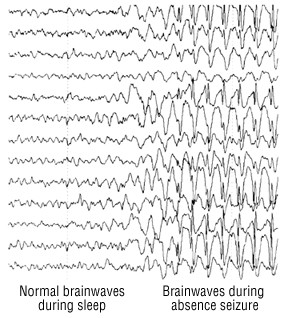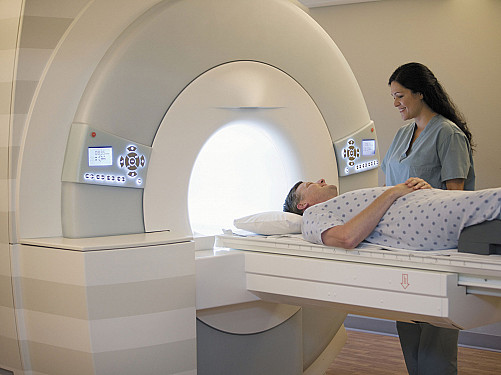Recent Blog Articles

Lead poisoning: What parents should know and do

How does waiting on prostate cancer treatment affect survival?

Does running cause arthritis?

Is alcohol and weight loss surgery a risky combination?

Preventing ovarian cancer: Should women consider removing fallopian tubes?

Healthier planet, healthier people

Is snuff really safer than smoking?

Will miscarriage care remain available?

Considering collagen drinks and supplements?

Does less TV time lower your risk for dementia?
Electroencephalogram (EEG)
An electroencephalogram (EEG) is a recording of the brain's electrical activity. Metal electrodes attached to the skin on the outside of the head transform electrical activity into patterns, commonly called brain waves. A polygraph machine records the brain waves. In some cases, the waves are transmitted to a computer screen. A basic EEG takes about 45 minutes, with a range of 30 minutes to 90 minutes.
|
|
Lightweight EEG devices allow people to walk around and perform normal daily activities while the devices detect and record brain waves over longer periods of time.
To continue reading this article, you must log in.
Subscribe to Harvard Health Online for immediate access to health news and information from Harvard Medical School.
- Research health conditions
- Check your symptoms
- Prepare for a doctor's visit or test
- Find the best treatments and procedures for you
- Explore options for better nutrition and exercise
I'd like to receive access to Harvard Health Online for only $4.99 a month.
Sign Me UpAlready a member? Login ».
Disclaimer:
As a service to our readers, Harvard Health Publishing provides access to our library of archived content. Please note the date of last review or update on all articles.
No content on this site, regardless of date, should ever be used as a substitute for direct medical advice from your doctor or other qualified clinician.
Free Healthbeat Signup
Get the latest in health news delivered to your inbox!




